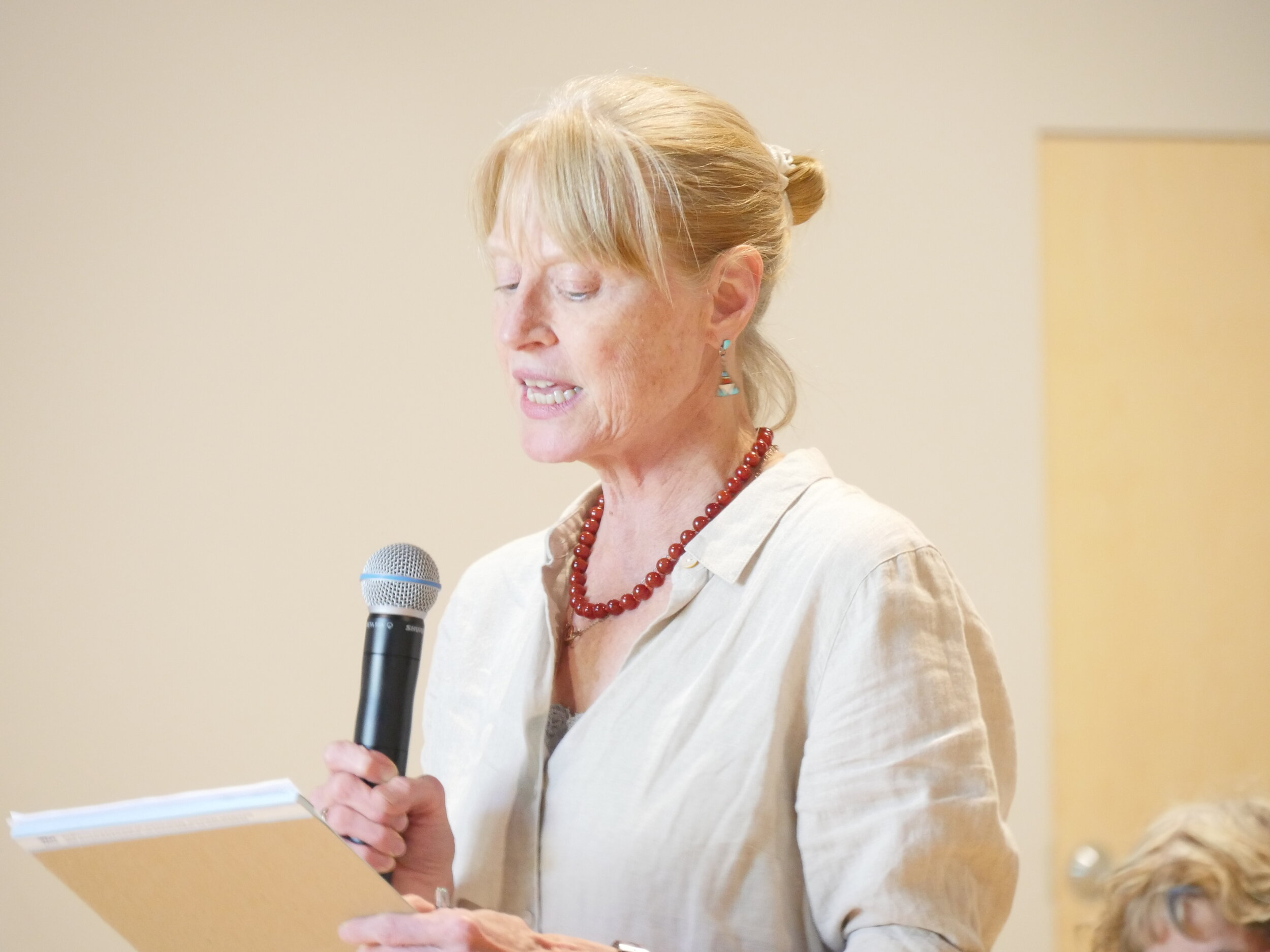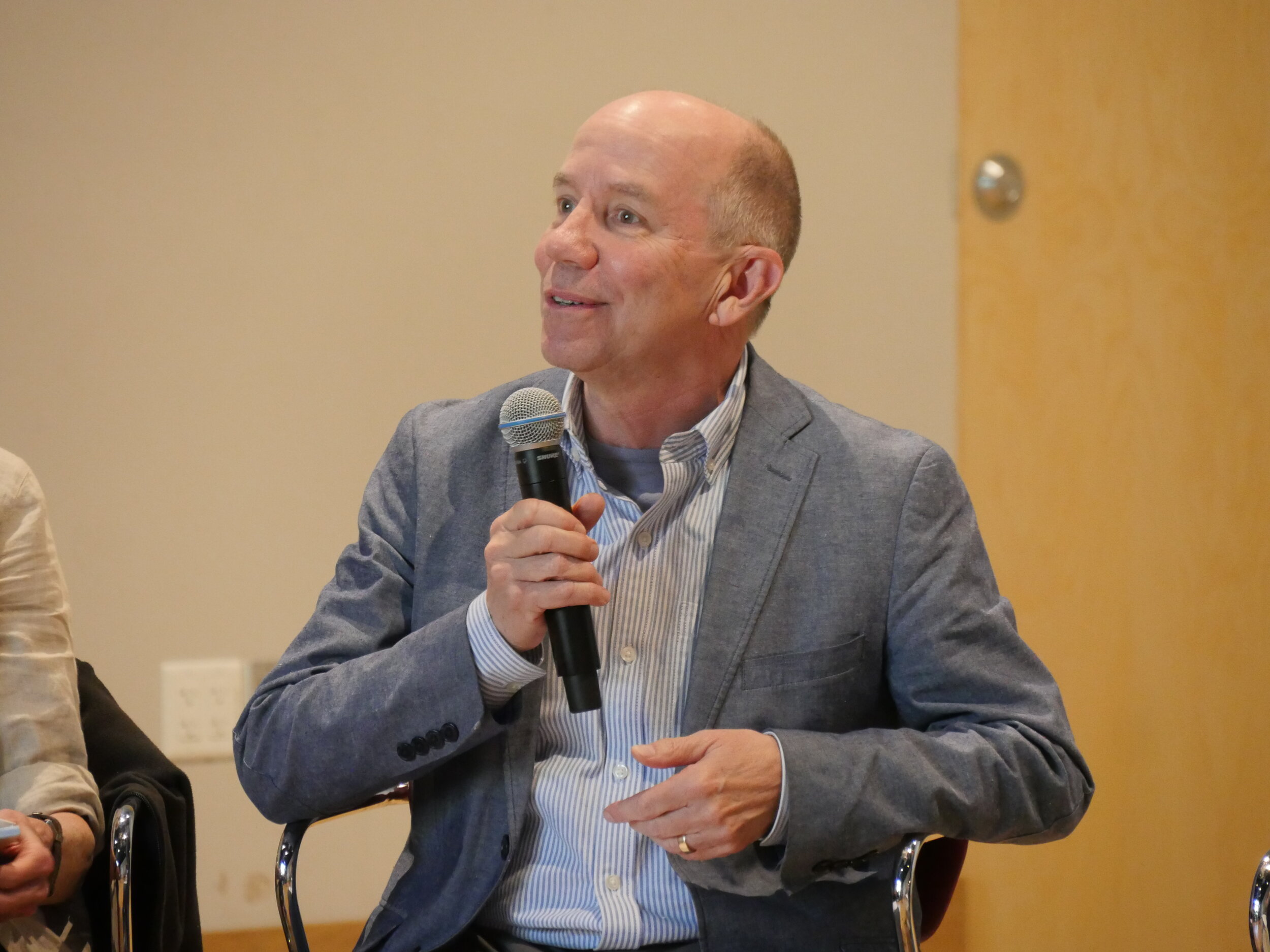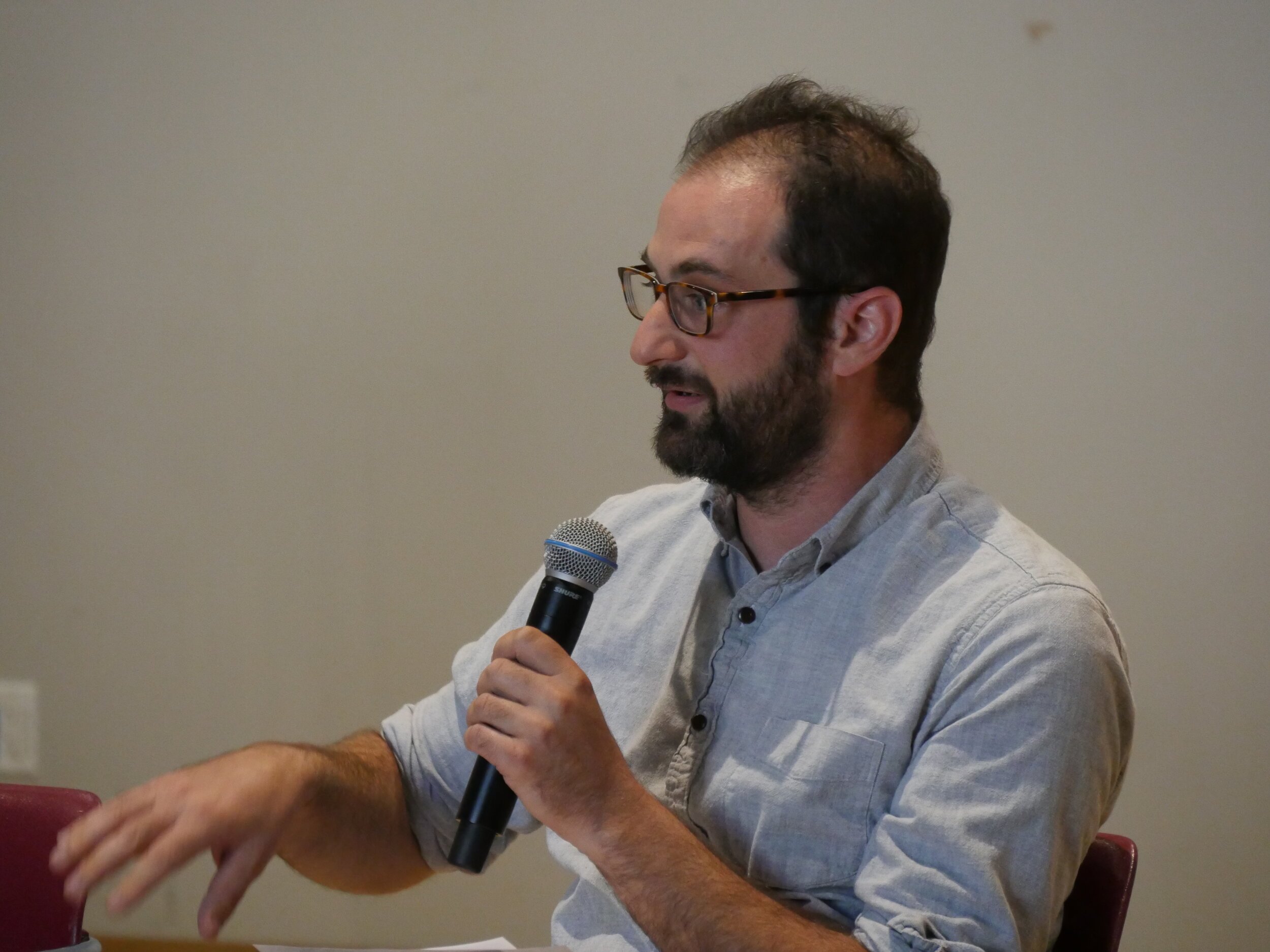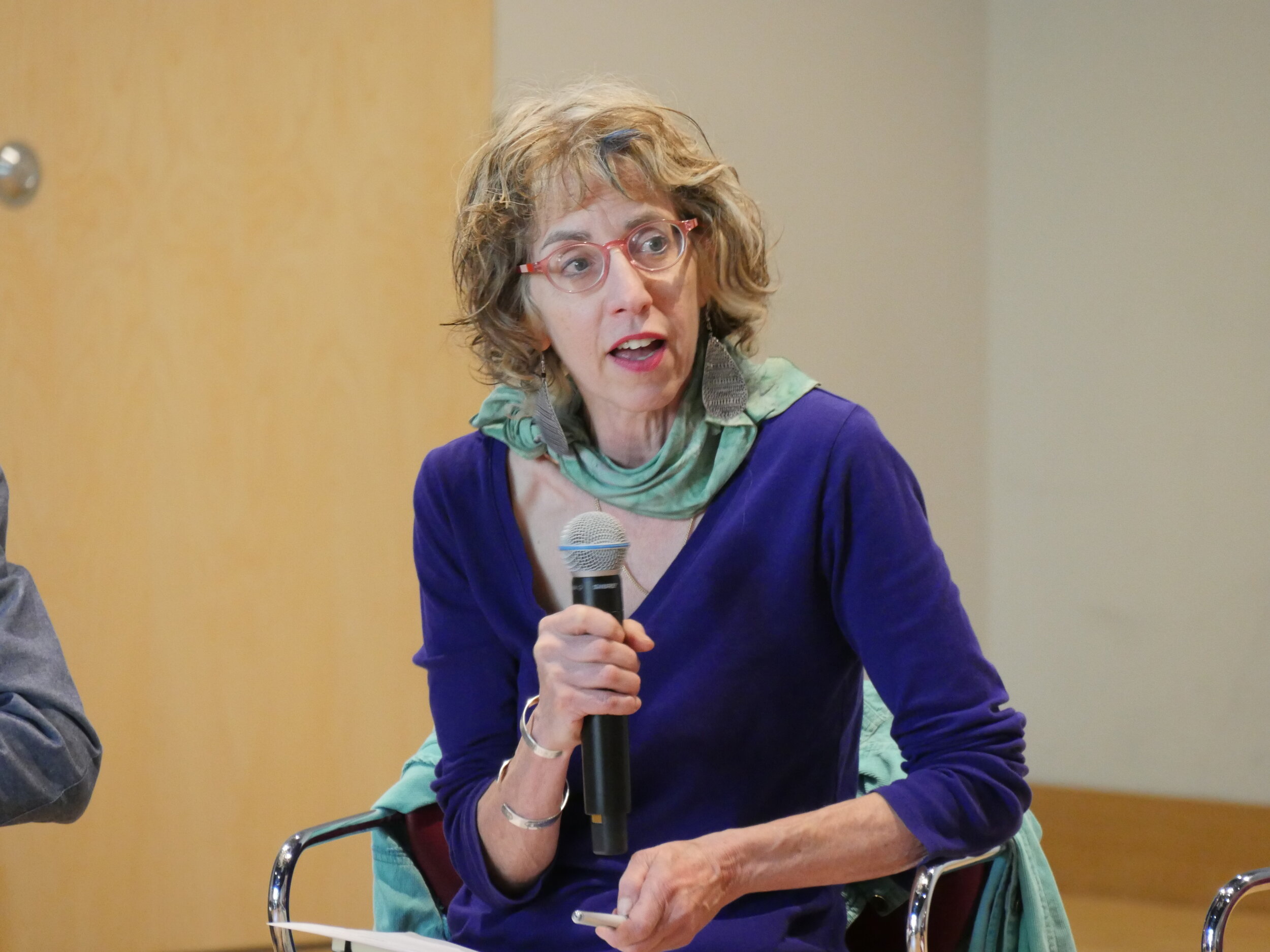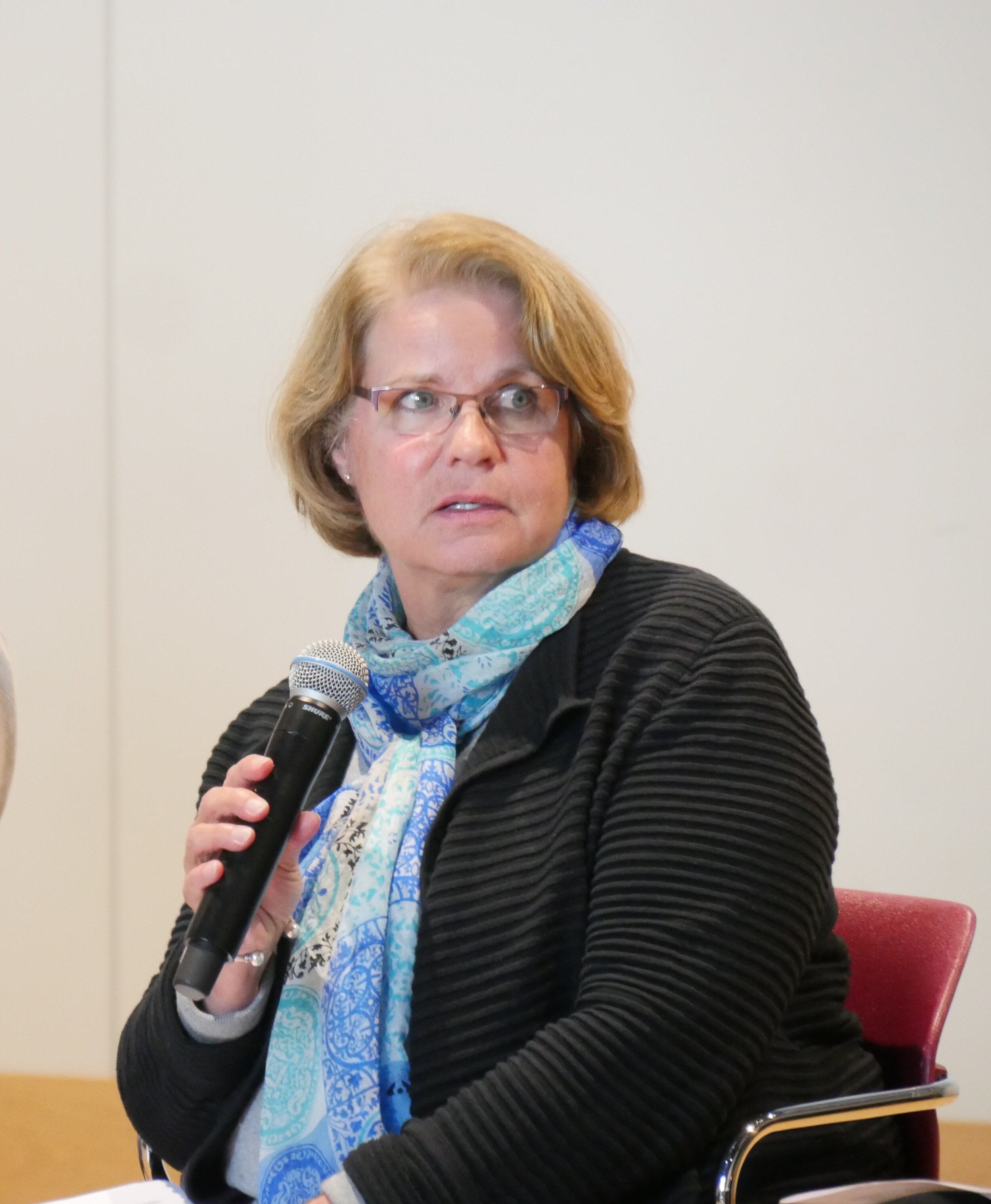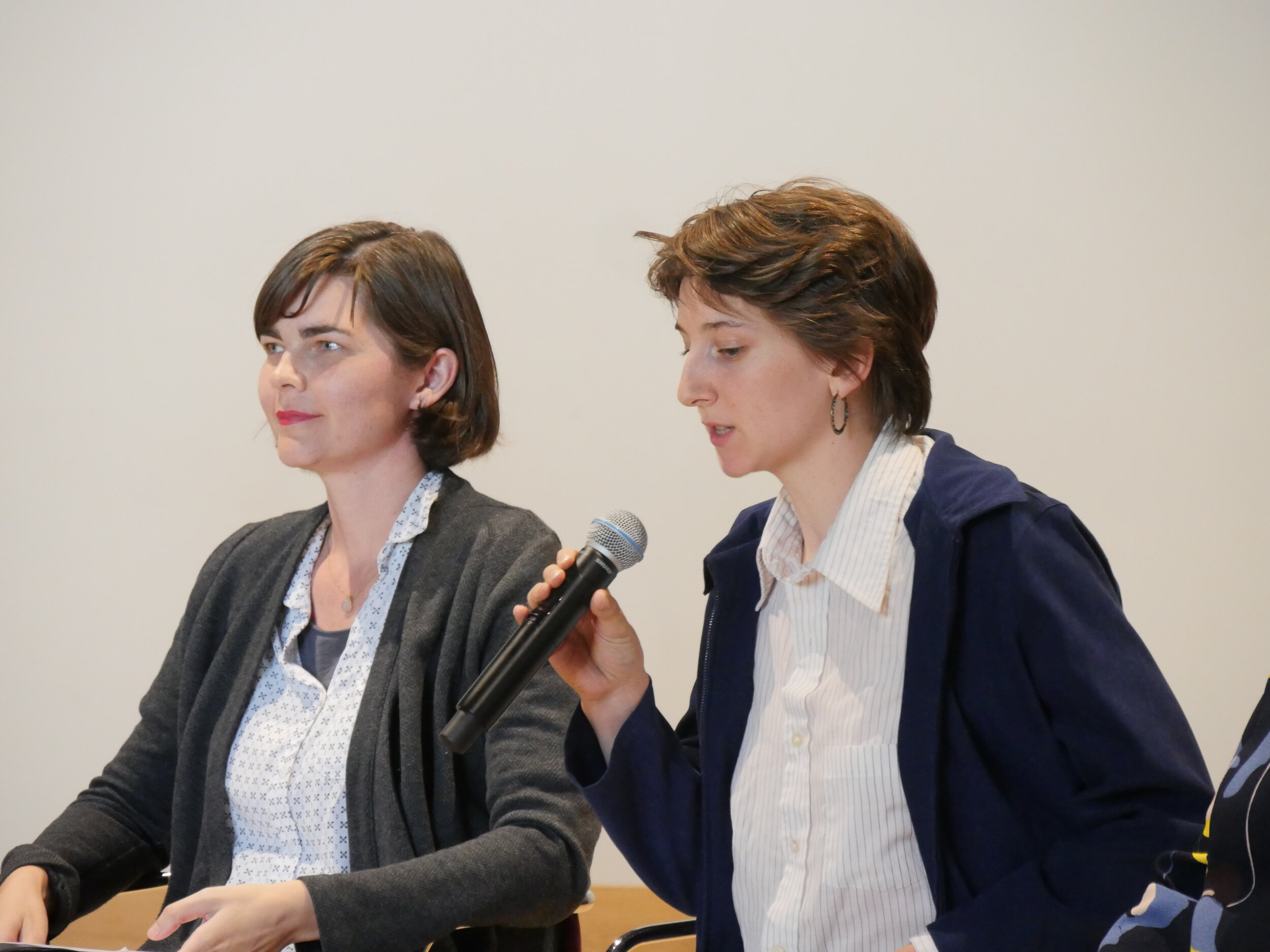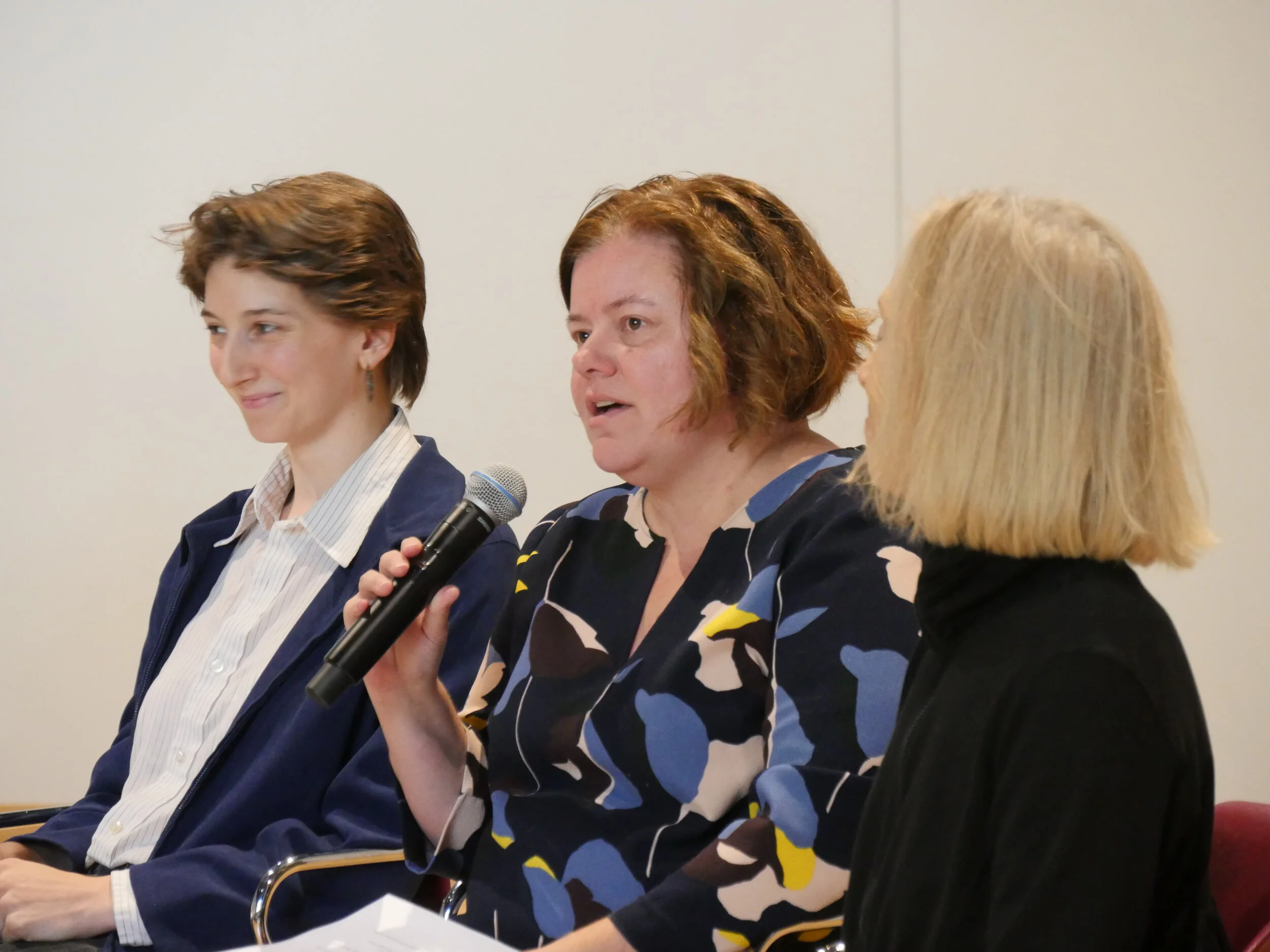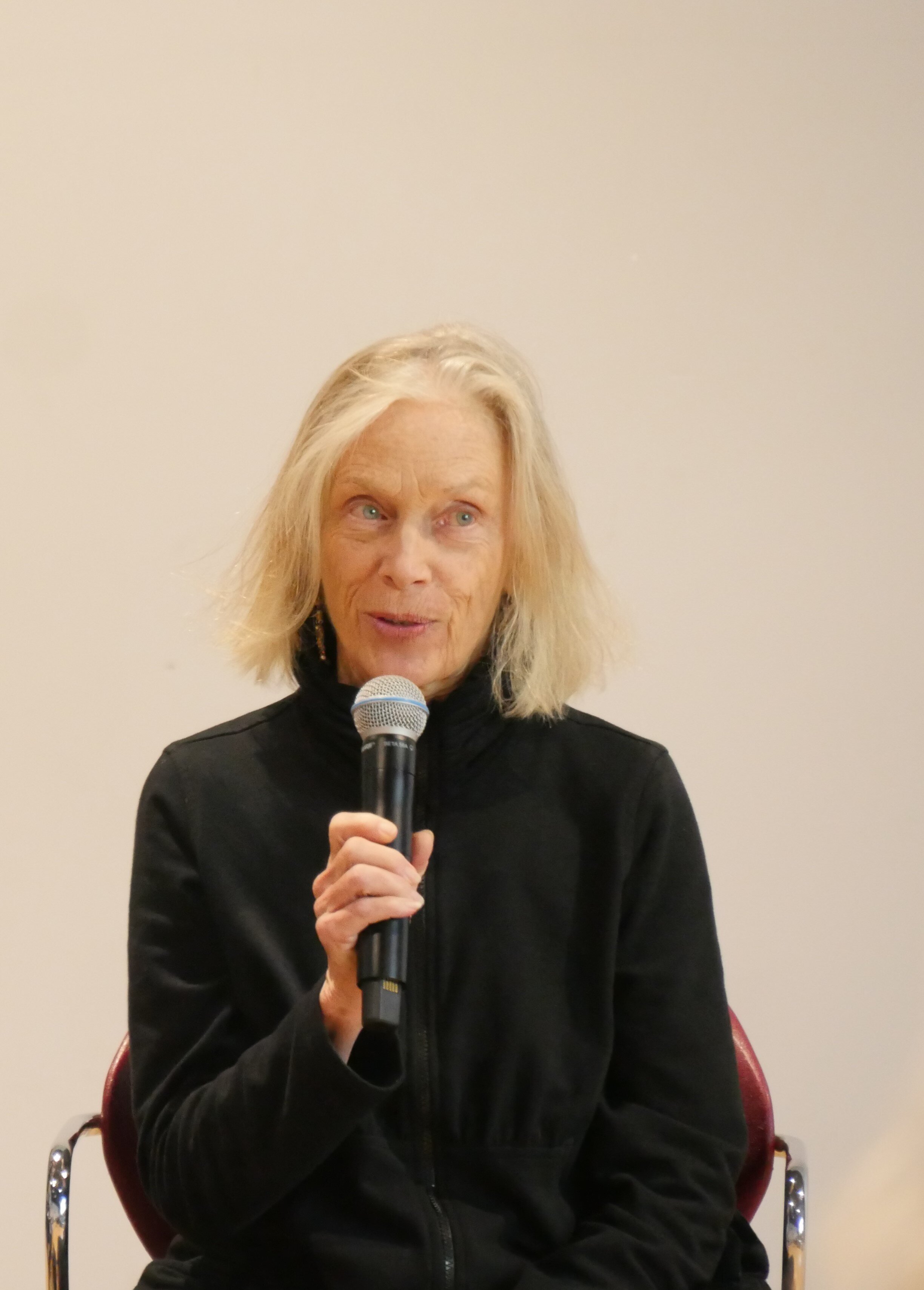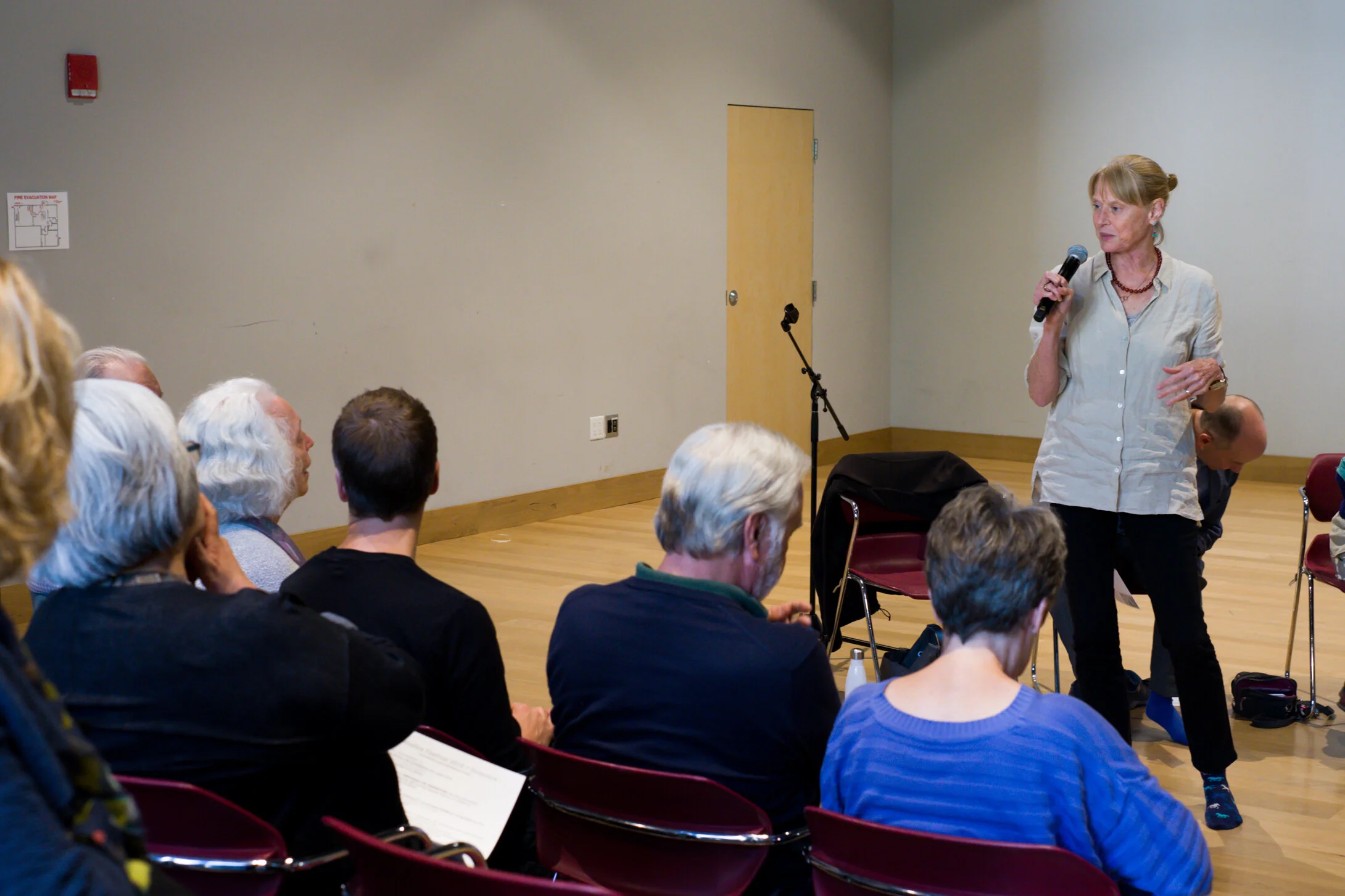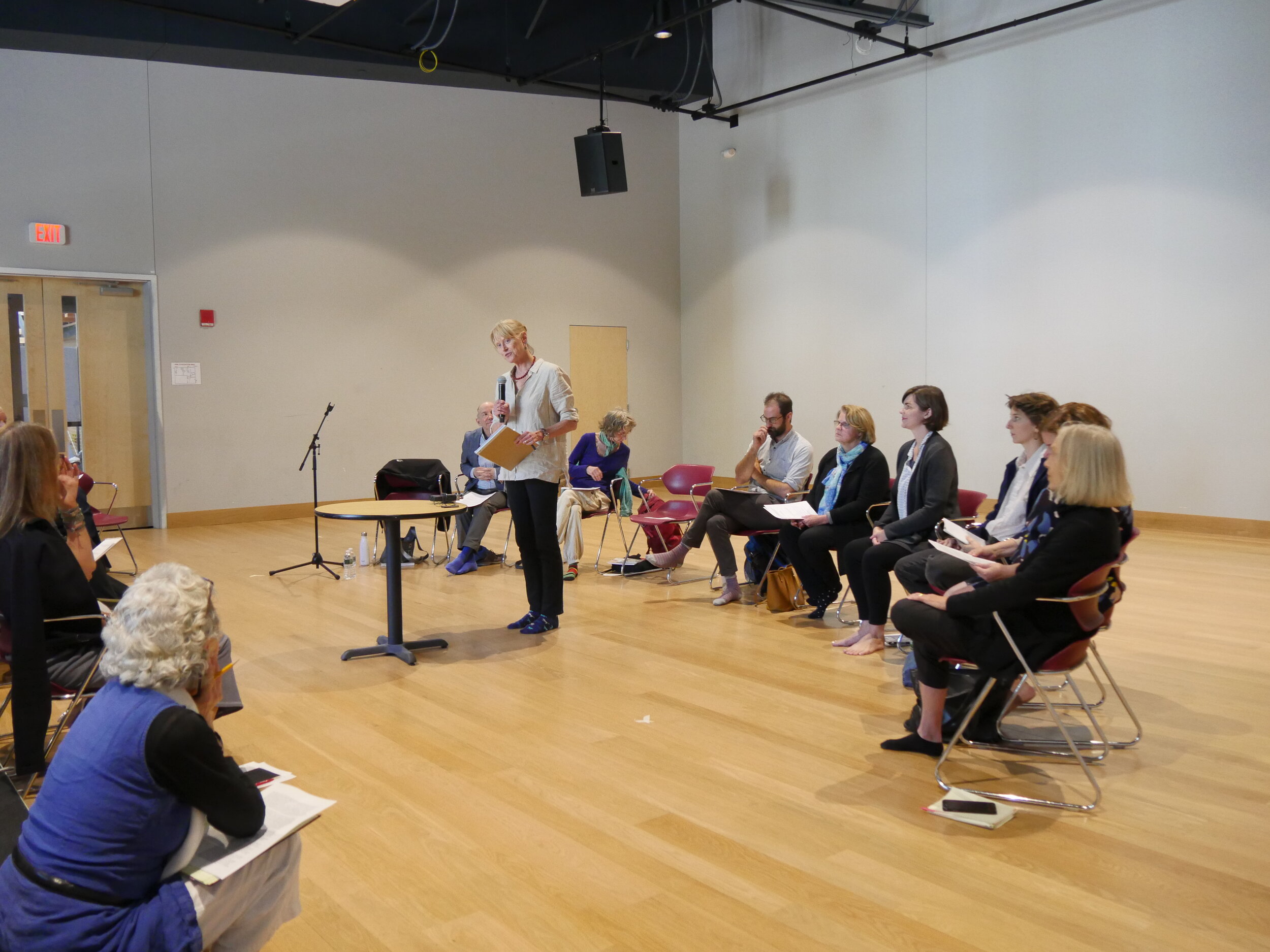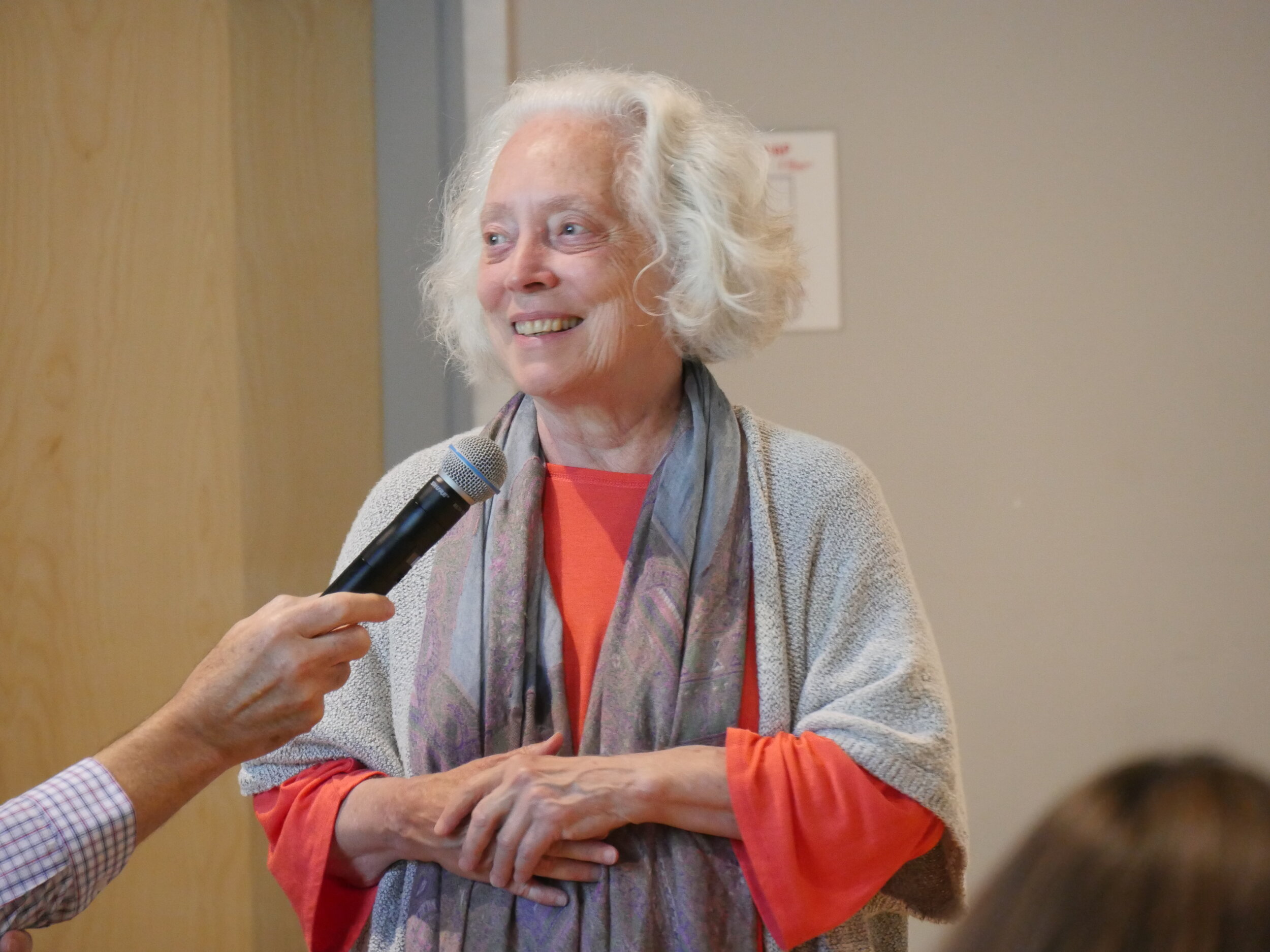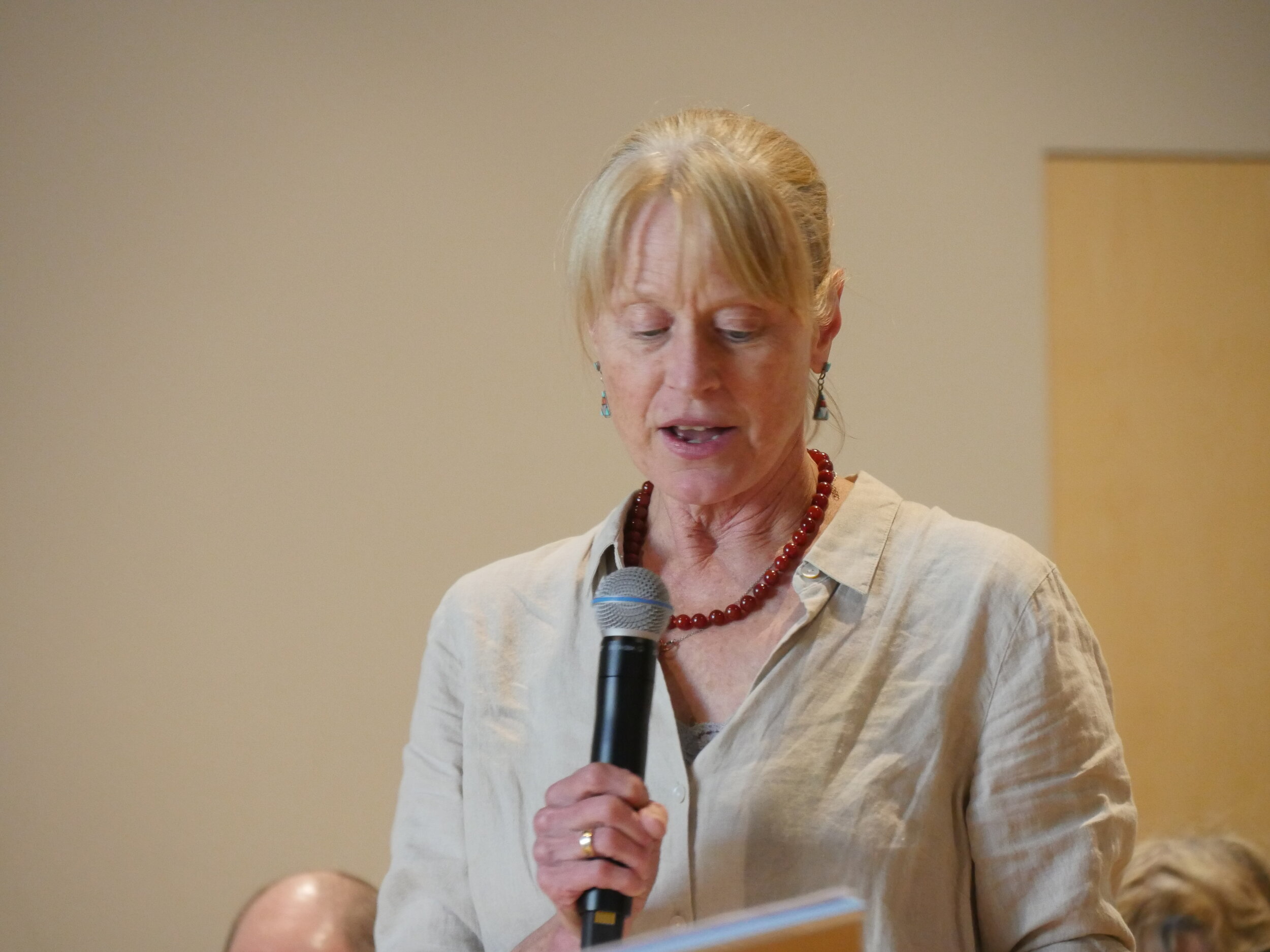ARCHIVING THE EXPERIENCE: A conversation about archives, and the documentation and preservation of movement-based work
with Lesley Farlow
Hosted by Lesley Farlow with Cassie Mey, Oral History Project Coordinator and Audio Archivist at The Jerome Robbins Dance Division of The New York Public Library; Emma Brown, Assistant Oral History Archivist and Smith College alumna; Elizabeth Myers, Smith College Director of Special Collections; Norton Owen, Director of Preservation/Jacob’s Pillow; Elizabeth Sharpe, Co-Director of Historic Northampton; Aaron Rubinstein, University Archives/UMass Amherst; Kate Tarlow Morgan, Editor in Chief of Currents Journal for the Body-Mind Centering® Association; and Andrea Olsen, Festival Curator.
ARCHIVES 101
Questions from Lesley to presenters:
WHAT do we mean when we talk about “an archive” and the action of “archiving”? What characterizes an archive? Is it solely primary source material? WHAT is the purpose of an archive? FOR WHOM are archives created? WHAT kinds of materials are we talking about? WHAT are the issues with respect to digital archives--questions of confidentiality, access, and what happens to the original materials? Is there a loss involved in digitizing physical materials/objects? HOW does the nature of the field (i.e. dance), the work, the life to be archived inform the type of material, its housing, its access, its distribution? HOW are archives created? Who decides what to keep and what not to keep? What are the criteria? What are the emotional complexities? HOW DO WE “ARCHIVE” dance and movement-based work/lives? How to translate the experience of movement, somatic awareness into language or into some form that can communicate from inside? HOW does PLACE inform an archive—not just the location of the materials, but the nature/subject/content of the materials collected?
Tweets
In collaboration with the Festival, the Jerome Robbins Dance Division's Oral History Project recorded in-depth interviews taken with the three celebrants: Janet Adler, Bonnie Bainbridge Cohen, and Nancy Stark Smith. These oral histories are being transcribed and processed over the next year to be included in the Division's archives at the New York Public Library for the Performing Arts. Once available for public access, they will appear in the NYPL catalog at the top of this search for the Dance Oral History Project, as well as in the Library's Digital Collections portal.
Slideshow
photographs by Mandy Kimm and Anna M. Maynard
Biographies
Lesley Farlow is a dance artist, movement educator and writer. She was based in New York for twenty years, performing, teaching, creating dance/theater work, writing and touring. During that time she was the Coordinator of the Oral History Project at the Dance Division of the New York Public Library for the Performing Arts. In addition to curating and conducting interviews for the OHP, she started the AIDS Oral History Project in order to document and honor the lives of dance artists living with AIDS. She holds a B.A. in Dance from Smith College, M.A. in Performance Studies from New York University and is a Certified Movement Analyst. She is an Associate Professor of Theater and Dance at Trinity College and is working on the Contact Quarterly Archives, the Contact Improvisation Archives and Nancy Stark Smith’s Archives.
Emma Rose Brown is a Queens-based performer, multidisciplinary-artist, and oral historian working in the field of dance. She assists in the preservation and production of the Dance Oral History Project at The New York Public Library for the Performing Arts and the Hudson Community Oral History Project in Hudson, NY. Her choreography was presented as part of Fresh Tracks at New York Live Arts in 2018 and 2019. This past year she was an artist-in-residence at the School for Contemporary Dance and Thought, The School of Making Thinking, and at Ridgewood Older Adult Center through the Queens Council on the Arts. Emma has collaborated and performed in the work of Julia Gladstone, Diana Crum, Jen Polins, Keely Garfield, Lisa Parra, Wally Cardona and Jennifer Lacey. Emma graduated from Smith College with a BA in American Studies and Landscape History.
Cassie Mey is the Oral History Archivist for the Jerome Robbins Dance Division at The New York Public Library for the Performing Arts. She was previously the Cataloger for the Merce Cunningham Dance Audio Collection, and the Oral History Archive Assistant from 2009-2014. A lifelong dancer, Cassie has performed for and collaborated with Dean Moss, Molissa Fenley, Jillian Peña, Katy Pyle, among others. She holds an MSILS from Pratt Institute and a BA in Dance from Mills College. Cassie oversees NYPL’s Dance Oral History Project and Dance Audio Archive - a collection of over 10,000 dance related audio recordings that date back to the 1940s. The dance oral histories within the Archive are unedited and in-depth audio interviews that capture the personalities, creative process, and relationships in the dance field not always evident in other forms of historical documentation. As coordinator of the Project, Cassie has recorded 33 long-form interviews, launched the Tap Oral History Project, and has also presented on the Project at the American Realness Festival, the Dance Studies Association conference, and the Oral History in the Mid-Atlantic Region conference.
Kate Tarlow Morgan, M.A., R.S.M.E., choreographer, author/editor, and certified teacher of Body-Mind Centering, is editor-in-chief of Currents Journal for the Body-Mind Centering Association, and editorial consultant for Lost & Found Poetics Document Initiative at C.U.N.Y-Center for Humanities. As sole archivist and author of The Rhythms Fundamentals® (1922-2022), based on the study of human and animal natural movement, Kate teaches Rhythms in local area schools and studios. Her book of somatic stories and histories, Circles & Boundaries, was published in the same year that she co-edited Movement and Experience: A Body-Mind Centering Anthology, 2011. Born and raised in New York City, Kate worked as a documentary historian and urban archaeologist from 1979-1997.
Beth Myers holds an MA and PhD from Loyola University Chicago in 20th Century US History, with concentrations in women’s history, gender theory, and public history. Beth joined Smith College in 2014 as Director of Special Collections, and previously held positions at the Women and Leadership Archives in Chicago and the Walter Reuther Library, Archives of Labor and Urban Affairs in Detroit. Her current research interest concerns global (non-US) approaches to documenting women’s lives. Smith College Special Collections includes three related but distinct collections: the Smith College Archives, the Mortimer Rare Book Collection, and the Sophia Smith Collection of women's history. The College Archives documents the life of the college from student activities to the board of trustees. The Mortimer Rare Book Collection houses over 46,000 books and manuscript collections that support the curriculum of the College, ranging from 5,000 year old cuneiform tablets to lesbian pulp fiction. The Sophia Smith Collection of women's history is the oldest repository of women's archival collections in the U.S. The SSC holds extraordinary records of women’s access to civic power, particularly the suffrage movement; national and grassroots movements for reproductive health, access, and justice; and the women’s liberation movement of the late twentieth century.
Andrea Olsen, Festival Curator
Norton Owen is a curator, writer, and archivist. For more than 40 years, he has been associated with Jacob’s Pillow Dance Festival, where as Director of Preservation he oversees projects involving documentation, exhibitions, audience engagement, and archival issues, as well as the extensive online archives. He has received awards from Dance/USA, the Martha Hill Dance Fund, Dance Films Association, and the José Limón Dance Foundation, and he is a past chair of the Dance Heritage Coalition. The Jacob's Pillow Archives document the history of Jacob's Pillow and the artists who have contributed to its legacy, with particular emphasis on Ted Shawn, Ted Shawn's Men Dancers, and the Denishawn Company. The collections include audiotapes, board minutes, books, correspondence, costumes, films, photographs, posters, programs, scrapbooks, videos, and more. The Archives is one component of the Pillow's Preservation Program, which documents the ongoing activities of the Festival and organizes exhibits exploring various aspects of dance history.
Aaron Rubinstein is the University and Digital Archivist at the Special Collections and University Archives (SCUA), UMass Amherst and an adjunct faculty member in the Simmons University School of Library and Information Science. Before UMass, Aaron was the Archivist for Digital Collections at Tufts University. Aaron has published and given talks on topics that range from the challenge of contemporary (and mainly digital) archival collections, documenting social change movements and activists (the focus of SCUA), creating meaningful and engaging user interfaces for archival material, and the future of publishing cultural heritage data on the web.
Elizabeth Sharpe has been the co-director of Historic Northampton since 2016 where she developed the recently opened “Making it on Main Street” exhibit of 400 years on our Main Street. She oversees collections and archives and is passionate about collecting Northampton’s oral history before it fades away. Her museum career began as an educator at the Smithsonian’s National Museum of American History where she worked for twenty years, as deputy assistant director for public programs. With a PhD in history from the University of Delaware and a master’s from the Cooperstown Graduate Program, she teaches in the Clemente Course in the Humanities and as an adjunct at UMass Amherst. She is the author of In the Shadow of the Dam: The Aftermath of the Mill River Flood of 1874 (Free Press, 2004), Amherst A to Z, 1759-2009, and numerous articles on museum education.
